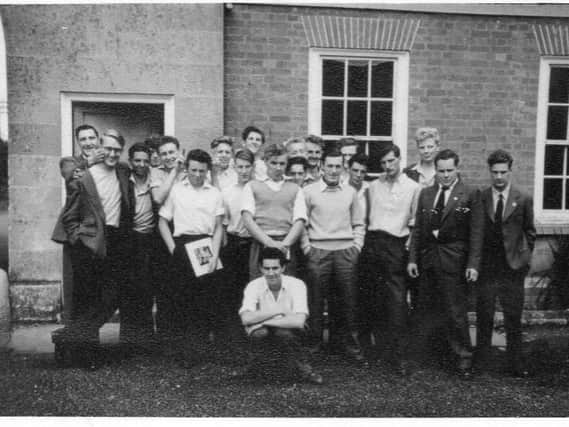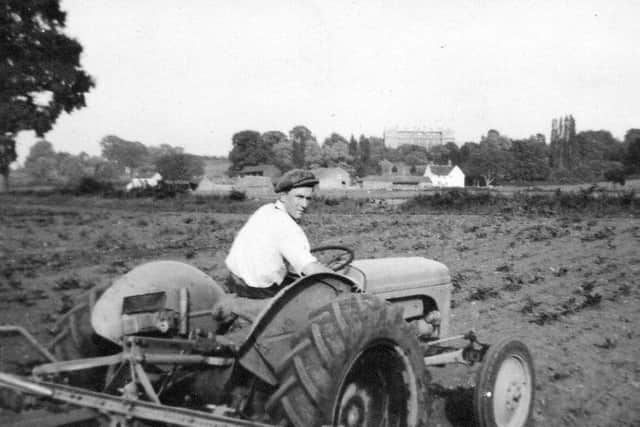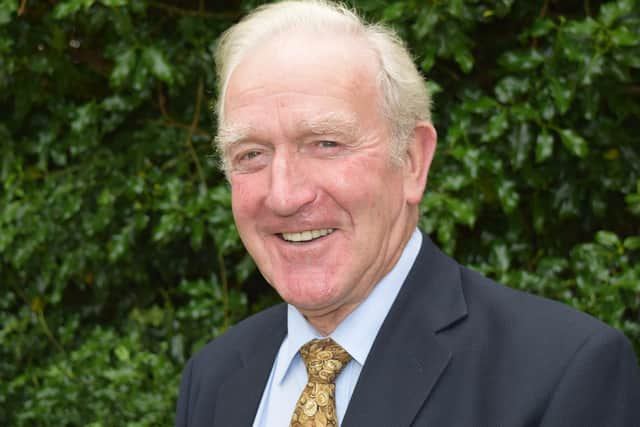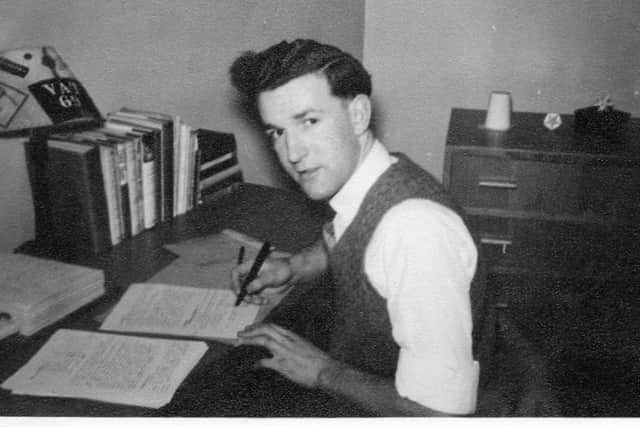Fond memories recalled of Moreton Morrell in the 1950s as the college turns 70


Students and staff who were at Moreton Morrell College in the 1950s have shared their memories of the early years at the college.
Moreton Morrell College, which is part of WCG (formerly Warwickshire College Group) is celebrating its 70th birthday this month.
Advertisement
Hide AdAdvertisement
Hide AdBrian Lewis studied at the college in 1955 and David Brazier joined as a lecturer in 1958, teaching agriculture on site for more than 30 years.


David, now 91, was 29 when he joined the staff at Moreton Morrell and lived onsite for over a decade.
He lived with his wife at the college and his first four children were born during his time in the accommodation.
He said: “We only had two buildings, Moreton Hall itself and the teaching block 400 yards down the road.
Advertisement
Hide AdAdvertisement
Hide Ad“A dairy unit was built near the teaching block, a large covered building in which to teach machinery, and of course a 600-acre farm. We had around 50 students and they all lived in the hall.


"It was sometime before we outgrew what we had.
“Each day the students would be split into two groups, half to go to lectures and half to work on the farm.
"At 8.15am, they gathered at the archway and were set their instruction groups for the day.
“There were around five staff members and we would go out weekly to Nuneaton, Stratford and Leamington to carry out teaching in colleges across the county, covering a wide range of farming skills.


Advertisement
Hide AdAdvertisement
Hide Ad"I taught crop production at Nuneaton on a Monday and Stratford on a Thursday.
“Later, I developed an agricultural science course and writing my own textbook - which has been widely used in developing countries.
“There was a close liaison all the time amongst the staff and students. We had a situation where students belonged very much to the college community.
"All the staff regularly gathered for a coffee in the main hall and the Principal Freddie Foster was always there too.”
Advertisement
Hide AdAdvertisement
Hide AdDavid says the college has changed beyond recognition since the 1950s, despite the original buildings remaining, but the college has been a trailblazer too.
“All the counties were developing their own colleges at this stage, but Moreton Morell could claim to be the founding college of horse-focused courses,” he said.
“Students did all sorts of silly things on site. They filled the famous arch to the teaching block solid with straw bales, so that nobody could get in and out! Many pranks best forgotten.
“Bicycles regularly appeared on roofs, all good fun, it was a great life.”
Advertisement
Hide AdAdvertisement
Hide AdBrian Lewis, now retired from farming and living in Wellesbourne, was 17 when he arrived at the college as a farm pupil – living with the students in Moreton Hall itself before becoming a full-time student studying General Agriculture with the 1955/56 course.
He said: “I came into farming from a non-farming background when my family moved to a farm at Kineton.
“The college farm was representative of all principal farming activities. It was the early days of mechanisation and two working horses were still kept on the farm for light haulage and for spreading fertilizer.
"There was still a great deal of manual work and I can remember ‘opening-up’ the headland of a field by hand so the tractor-drawn binder could start work without damaging the crop.
Advertisement
Hide AdAdvertisement
Hide Ad“Livestock rations were often mixed by hand on the barn floor, and I recall working in teams of two to go into a pen to catch a young beef animal, put a halter on and ‘throw’ the animal to the floor.
This was long before cattle crushes came in and would be beyond health and safety regulations now, but valuable experience in the handling of, and respect for, livestock.
“The lambing at the time was all out in the fields and the shepherd took particular pride in producing straw bale lambing pens, roofed with sheets of corrugated iron and protected by a windbreak of netting and straw.
“Farming was in a state of change, and, although many of the skills we learnt would no longer apply in later life, we learned not to be afraid of ‘hard graft’ and to take pride in everything we did.
Advertisement
Hide AdAdvertisement
Hide Ad“I have been fortunate in that my association with the college was to continue throughout my active farming life - firstly teaching day classes in the 1960s, later, as an examiner of proficiency tests, and finally as industrial assessor for the BTEC course in Agriculture.
“All these experiences leaving me with many friends amongst former members of staff.”
To share images and memories of time studying at Moreton Morrell College email: [email protected]